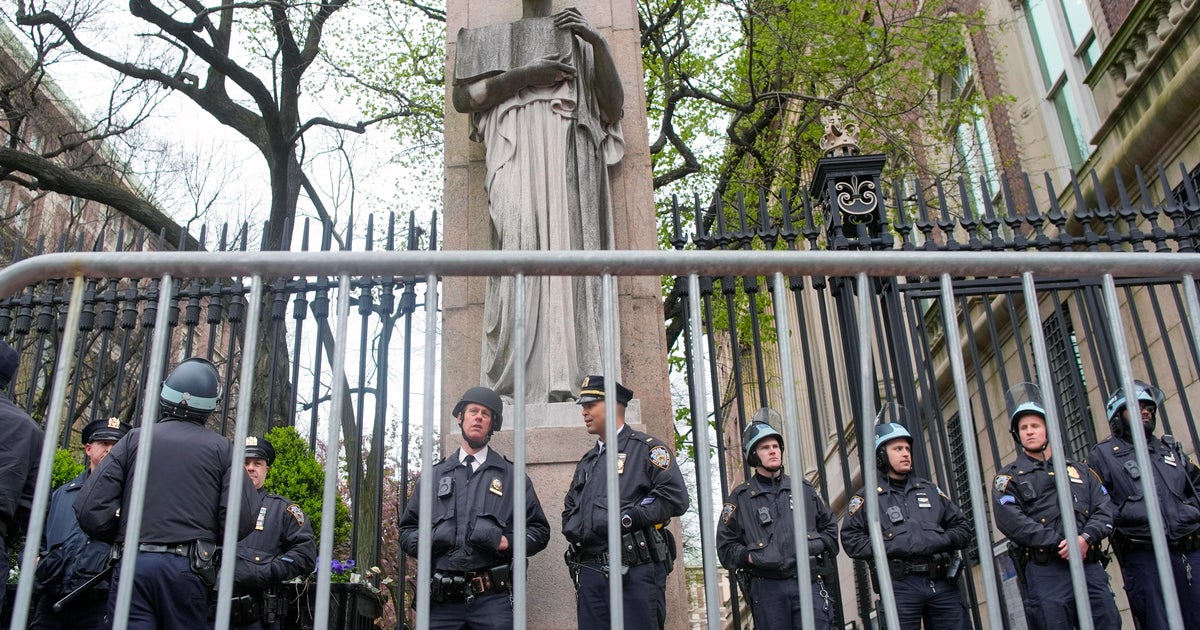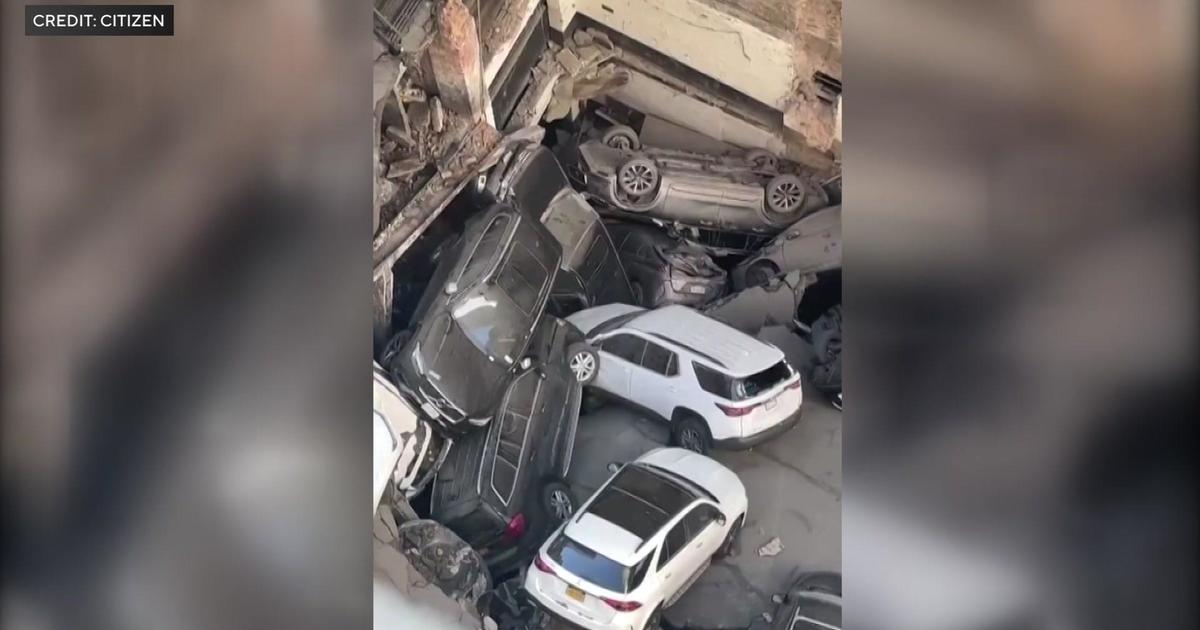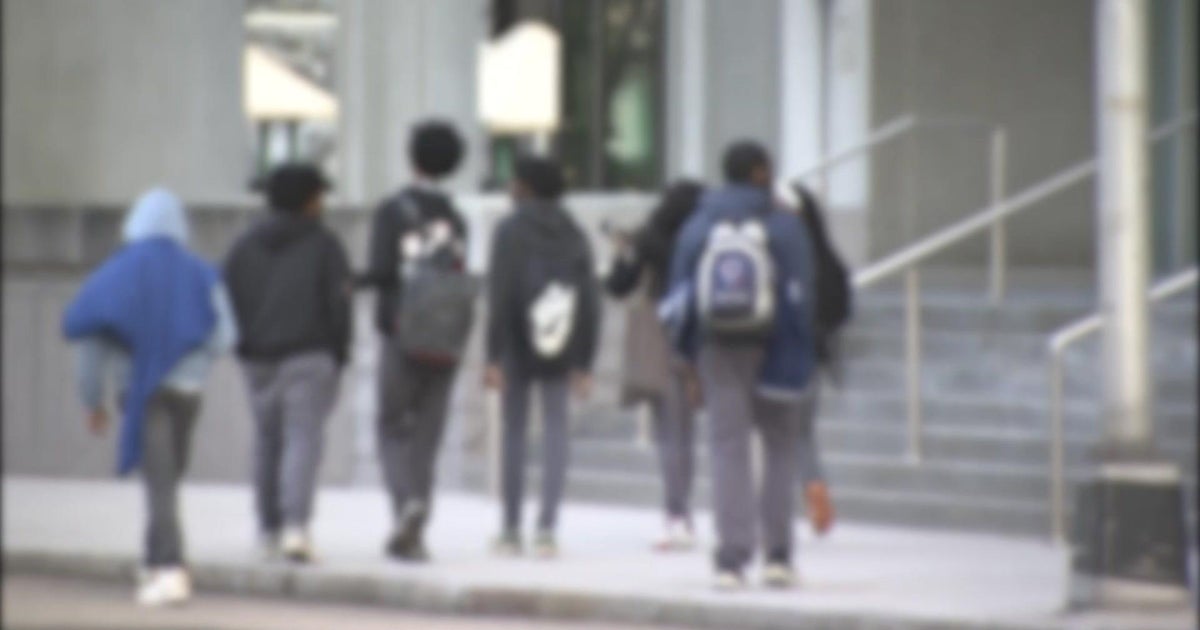De Blasio: Federal Government Should Come To Puerto Rico's Rescue
NEW YORK (CBSNewYork/AP) -- Mayor Bill de Blasio says the federal government should take responsibility in helping resolve the debt crisis in Puerto Rico.
The U.S. Caribbean territory owes $72 billion in debts it governor has said publicly it cannot pay.
Part of the reason is that a U.S. government phase-out of tax breaks caused a number of big pharmaceutical companies to leave for the Cayman Islands.
De Blasio: Federal Government Should Come To Puerto Rico's Rescue
"I think federal decisions led to this crisis, and I think the federal government has an obligation to resolve this crisis," de Blasio told reporters, including WCBS 880's Rich Lamb, on Monday.
It's estimated that hedge funds hold $15 billion of the debt, mutual bond funds another $11 billion, and the rest by individuals, mostly Americans.
"The hedge funds, I think, are being extremely irresponsible. They are vultures," said New York City Council Speaker Melissa Mark-Viverito, a Puerto Rican native. "They're actively advocating in Congress for Congress not to help Puerto Rico."
On Monday, Puerto Rican officials and advisers held the first of what they say will be several meetings with creditors to explain why they believe it is necessary to restructure the island's public debt amid a deepening economic crisis.
But specifics for bondholders were few. While saying "sacrifices" will be required by everyone involved, Government Development Bank President Melba Acosta said it was premature to propose details to investors because a credible recovery and fiscal adjustment plan is still being drawn up.
Once that plan is completed "the contribution required from each of our investors will be made clear," Acosta said at the New York offices of Citigroup.
Gov. Alejandro Garcia Padilla said he is seeking a payment moratorium from bondholders and renegotiations on debt. His administration also is pushing the U.S. Congress to allow Puerto Rico's government and its public agencies access to Chapter 9 bankruptcy if needed.
Acosta told investors Puerto Rico is "committed to developing a comprehensive package of reforms" to reverse more than a decade of persistent economic stagnation.
Because the economic recovery plan will take years to implement and span different administrations in the U.S. commonwealth, Garcia's government will propose establishing a financial control board with the "tools necessary to compel compliance,'' she said.
The meeting included a presentation by Anne Krueger, a former International Monetary Fund official who co-authored a recent report titled ``Puerto Rico - A Way Forward'' that the island's government is using as a kind of blueprint.
Among other things, Krueger recommends exchanging some of Puerto Rico's debt for bonds with longer maturities and slashing subsidies to the University of Puerto Rico for savings of up to $500 million annually.
She said the Puerto Rican government's spiraling debt and fiscal situation is unsustainable and its cash balances are critically low. At the same, she noted, the island's labor force has been steadily falling as people move to the U.S. because the island has had ``almost no economic growth for two decades.''
(TM and © Copyright 2015 CBS Radio Inc. and its relevant subsidiaries. CBS RADIO and EYE Logo TM and Copyright 2015 CBS Broadcasting Inc. Used under license. All Rights Reserved. This material may not be published, broadcast, rewritten, or redistributed. The Associated Press contributed to this report.)



